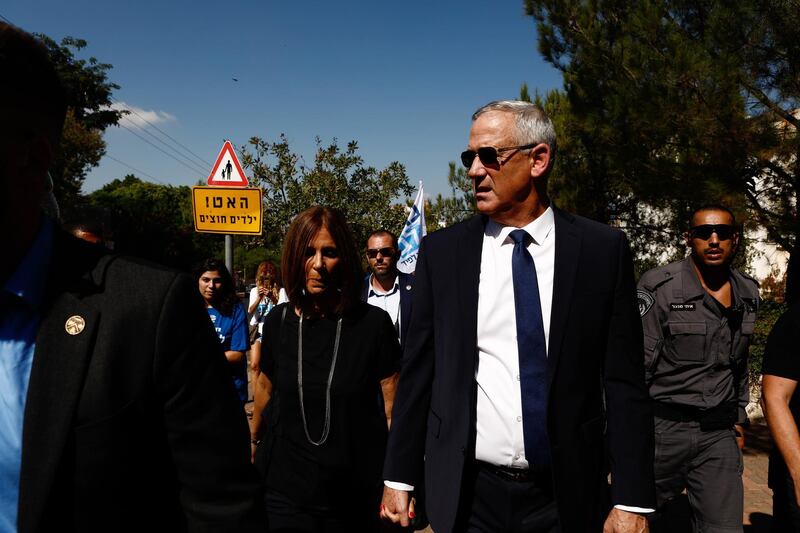A Dutch-Palestinian man has urged a court in The Hague to go ahead with a “David versus Goliath” case against Israeli politician Benny Gantz over the deaths of six family members in a 2014 Israeli air strike.
Ismail Ziada is seeking €600,000 (Dh2.4 million) for the deaths of his mother, three brothers, sister-in-law and nephew, 12, when the family’s home in Al Bureij refugee camp in Gaza was hit during Israeli military operations.
Mr Ziada showed pictures of his dead relatives, telling the judges "much depends on the outcome of this judicial process".
Judges at The Hague’s District Court heard that he was seeking justice because he would not get a fair hearing in an Israeli court.
“Palestinians seeking accountability for war crimes are discriminated against," Mr Ziada said.
The preliminary hearing to determine whether or not the court should try the case began as Israel voted in a closely fought election.
The leader of the Blue and White party, Mr Gantz is a strong contender to replace Benjamin Netanyahu as Israeli Prime Minister and was the Israeli military's chief of general staff when the Ziada residence was bombed in the 2014 offensive.
Mr Gantz, 60, is named alongside former Israeli air force chief Amir Eshel, 60, but neither attended the hearing on Tuesday.
Representing Mr Ziada, lawyer Liesbeth Zegveld said it was impossible for her client to take his claim anywhere else.
“As a Palestinian, my client has no access to a partial and independent judge” in Israel, Ms Zegveld told the court.
The case has been brought to The Hague under Dutch “universal jurisdiction” laws, under which war crimes committed abroad can be prosecuted by courts in the Netherlands if the victims are Dutch citizens who have no access to justice elsewhere.
Lawyers acting on behalf of Mr Gantz filed a motion to have the case dismissed, arguing that the Dutch courts did not have jurisdiction.
One, Thom Dieben, rejected the arguments made by Mr Ziada.
"It is not up to the Dutch court to judge military actions of Israel, just as it is not up to an Israeli court to judge Dutch military actions in Afghanistan, Iraq and the former Yugoslavia," Mr Dieben said.
Cathalijne van der Plas, another defence lawyer, said: "It is a case that has no connection with the Netherlands and derives from a situation thousands of kilometres away, and relates to sovereign military intervention by the state of Israel in the context of an authorised military operation.
"The only possible conclusion here is that your court does not have jurisdiction to hear the case."
As many as 2,300 people, mostly civilians, were killed and about 10,000 wounded during the 50-day war in Gaza.
After the fighting, the UN said that more than 96,000 homes had been damaged or destroyed.
Human Rights Watch said in 2014 that Israel was likely to have committed war crimes during the conflict.
"Israel has a long record of failing to undertake credible investigations into alleged war crimes," the organisation said.
Judges are expected to give a ruling within the next two months.








